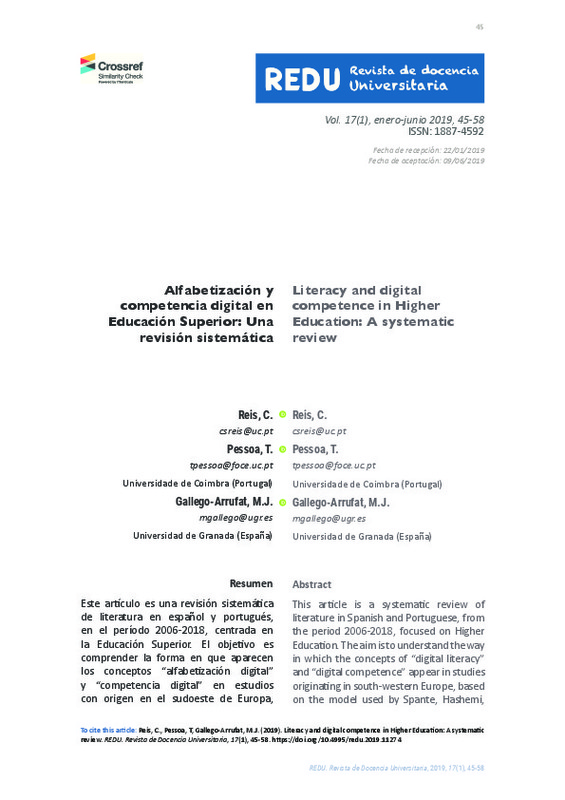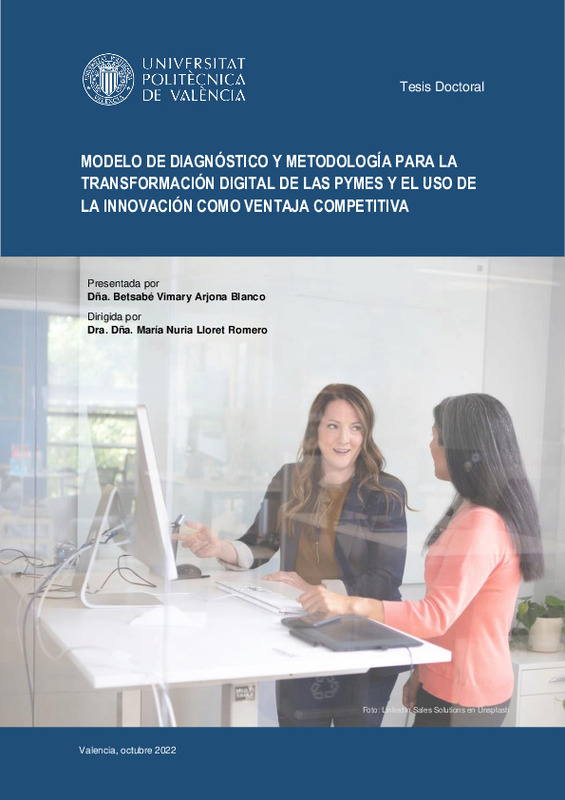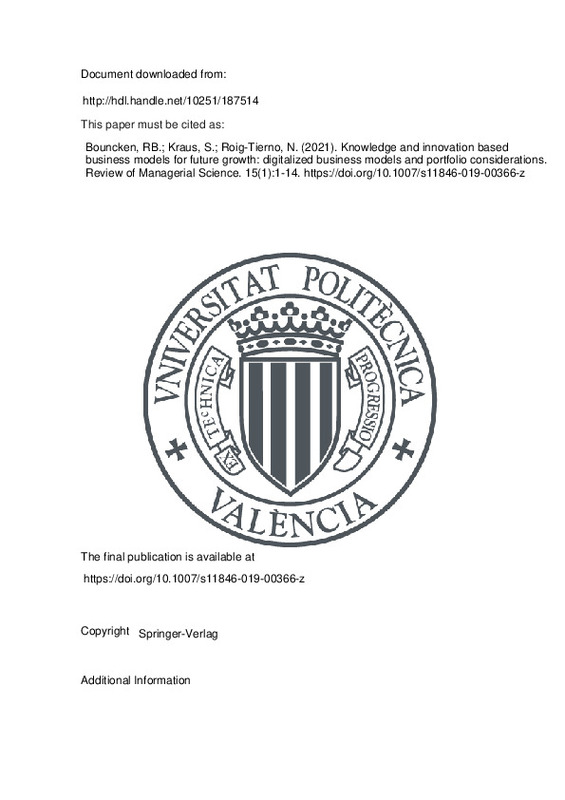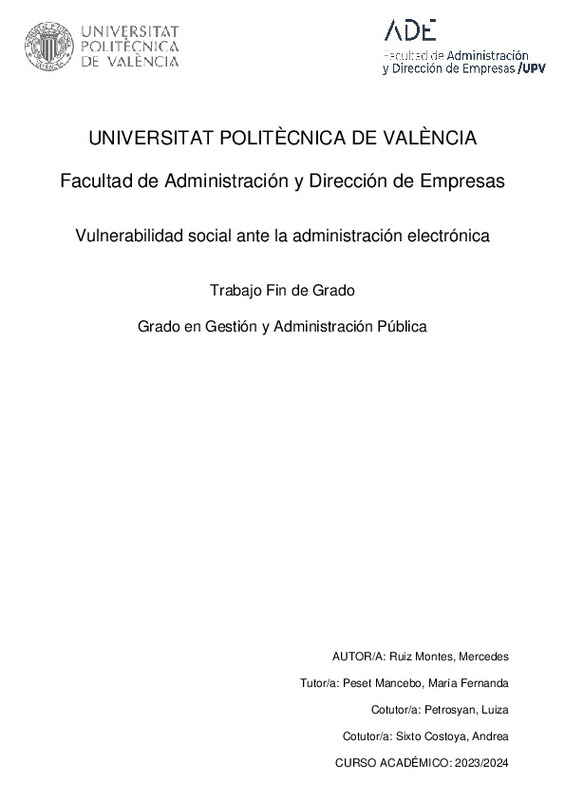|
Resumen:
|
[EN] This article is a systematic review of literature in Spanish and Portuguese, from the period 2006-2018, focused on Higher Education. The aim is to understand the way in which the concepts of “digital literacy” and ...[+]
[EN] This article is a systematic review of literature in Spanish and Portuguese, from the period 2006-2018, focused on Higher Education. The aim is to understand the way in which the concepts of “digital literacy” and “digital competence” appear in studies originating in south-western Europe, based on the model used by Spante, Hashemi, Lundin and Lagers (2018) for “digital literacy” and “digital competence”. The review identifies the year of publication, countries of origin, purpose of the studies, type of article (theoretical or empirical studies) and level of analysis (macro-, meso- or micro-). To verify the use of the concepts, the following schema is adapted and applied: (1) used without definition, (2) defined by reference of a political nature, (3) defined with reference to the research and to policy, (4) defined according to the research, (5) defined through discussion and / or development of the concepts. This gives an overview of the patterns in this context. We opted for a free to access database with wide Hispanic coverage (Dialnet), finding for the most part articles of Spanish origin and of an empirical nature. They predominantly feature work focused on educational changes, at micro level, with reference to the concepts of literacy and digital competence, within the framework of higher education, without presenting substantive definitions. In addition, the absence of a framework definition of the concepts of literacy and competence often leads to ambiguity, theoretical and practical inconsistency, as well as superficiality in the use of the concepts.
[-]
[ES] Este artículo es una revisión sistemática de literatura en español y portugués, en el período 2006-2018, centrada en la Educación Superior. El objetivo es comprender la forma en que aparecen los conceptos “alfabetización ...[+]
[ES] Este artículo es una revisión sistemática de literatura en español y portugués, en el período 2006-2018, centrada en la Educación Superior. El objetivo es comprender la forma en que aparecen los conceptos “alfabetización digital” y “competencia digital” en estudios con origen en el sudoeste de Europa, partiendo del modelo usado por Spante, Hashemi, Lundin, y Lagers (2018) para “digital literacy” y “digital competence”. La revisión identifica año de publicación, países de origen, propósito de los estudios, tipo de artículos (estudios teóricos o empíricos) y nivel de análisis (macro, meso o micro). Para verificar el uso de los conceptos se adapta y aplica el esquema: (1) usado sin definir, (2) definido según referencia de carácter político, (3) definido con referencia a la investigación y la política, (4) definido según la investigación, 5) definido con discusión y/o desarrollo de los conceptos. Se obtiene así una visión general de los patrones en este contexto. Se opta por una base de datos de carácter libre y gratuito y de amplia cobertura hispana (Dialnet), encontrando en su mayor parte artículos de origen español y de naturaleza empírica. Destacan los trabajos centrados en el cambio didáctico, de nivel micro, con referencia a los conceptos de alfabetización y competencia digital en el marco de la enseñanza superior, sin presentar definiciones sustantivas. Además, la ausencia de una definición marco de los conceptos alfabetización y competencia suele propiciar ambigüedad, inconsistencia teórica y práctica, así como un uso superficial de los conceptos.
[-]
|











